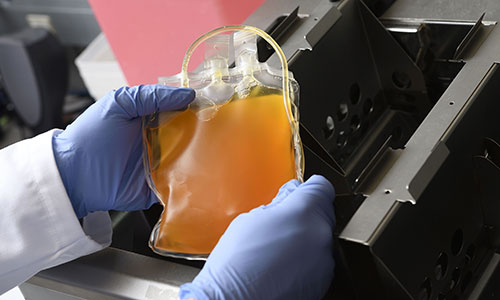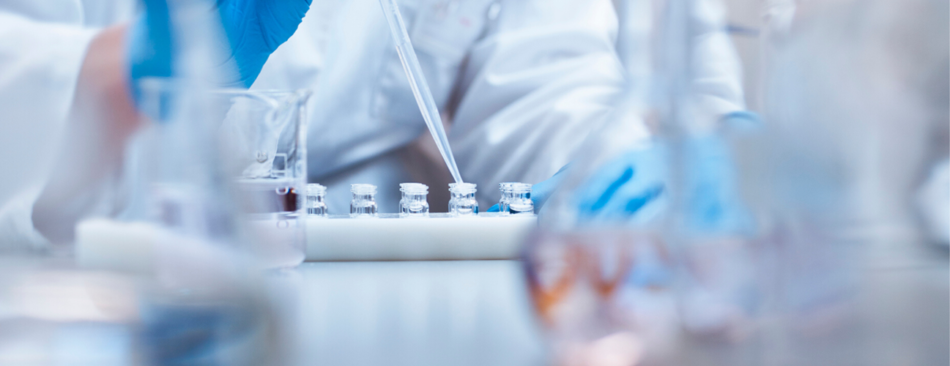Treatment for COVID-19 depends on the severity of the infection and risk factors affecting individuals. For milder illness, resting at home and taking medicine to reduce fever is often sufficient. A doctor may prescribe antiviral pills if a patient is at high risk of severe infection or has other indications for this therapy. More severe cases may require hospitalization.
Antiviral Medication
Antiviral medications are available to treat several viral infections, such as influenza. Antiviral drugs generally don’t kill a virus but instead limit the production of new viruses inside host cells. Effective antiviral treatments can shorten the duration of the illness and lessen complications for some people.
COVID Pills: Paxlovid and Molnupiravir
Two pills, taken by mouth, can treat COVID-19 in some people. One pill, molnupiravir, is produced by Merck. The other, Paxlovid (nirmatrelvir and ritonavir tablets, co-packaged for oral use), is made by Pfizer. Both medications were granted an emergency use authorization (EUA) by the U.S. Food and Drug Administration (FDA) in December 2021.
According to FDA criteria, people who can get Paxlovid are those who meet all of these criteria:
- Have tested positive for COVID-19
- Are at least 12 years old
- Weigh at least 88 lbs
- Have certain health conditions, such as cancers, diabetes, obesity or others associated with more severe cases of COVID-19
To be eligible for these pills, people must be at high risk for progression to severe COVID-19, including hospitalization or death. Paxlovid and molnupiravir are available by prescription only and should be started as soon as possible after diagnosis of COVID-19 — no later than five days after symptoms began.
If you are prescribed Paxlovid for treatment of COVID-19, be sure to tell all of your doctors and care team members about other medicines you are taking and ask about drug interactions with Paxlovid. Some medicines, including certain blood thinners and immunosuppressants, are not safe to take with Paxlovid. Your usual medications or doses may need to be temporarily adjusted.
COVID-19 Rebound — Can COVID-19 come back after treatment with Paxlovid?
Some people treated with Paxlovid can test positive two to eight days after initial recovery, and a return of COVID-19 symptoms is possible. If that happens, the CDC recommends that patients re-isolate for at least five days, until fever has resolved for 24 hours (without the use of fever-reducing medication) and symptoms are improving. Patients should wear a mask for 10 days after rebound symptoms start.
Remdesivir
The antiviral drug remdesivir was developed to treat people infected with the Ebola and hepatitis C viruses. On Oct. 22, 2020, the FDA approved the drug for treatment of hospitalized adult and pediatric patients with suspected or laboratory-confirmed COVID-19, whether the illness is mild or severe. The drug is an intravenous medication with a course of treatment lasting five to 10 days.
Monoclonal Antibodies
Manufactured in a laboratory, monoclonal antibodies are proteins that in some cases, can help your body fight infectious disease. Monoclonal antibody treatment is given by infusing the material into the bloodstream.
In January 2022, the CDC discontinued treatment with some types of monoclonal antibodies because those therapies did not work on the recent coronavirus variants (mutated viruses).
Current recommendations issued by the National Institutes of Health say that a monoclonal antibody called bebtelovimab can be given to patients age 12 and older, only when Paxlovid and remdesivir are not available or not clinically appropriate for the patient.
Immunomodulators
In June 2021, the FDA granted an EUA for tocilizumab for treatment of adults and children hospitalized with severe COVID-19. This biologic agent can reduce inflammation and is FDA approved to treat autoimmune illnesses such as rheumatoid arthritis. It is given by medical practitioners as an injection or infusion.
Another medication, baricitinib, is being studied to determine if it can benefit people with COVID-19 in a similar way.

From our Newsroom
Findings from a Johns Hopkins-led study, posted to preprint site MedRXiv, support antibody-rich blood as an early treatment option.
Dexamethasone for COVID-19
Dexamethasone is a steroid drug that has been used for years to treat inflammation from many diseases including asthma, Crohn’s disease and certain cancers. Current guidelines recommend use of dexamethasone up to 10 days, or until discharge, for patients hospitalized with COVID-19.
Dexamethasone may be processed differently in Black patients than in other patients. Johns Hopkins researchers note that this difference, along with other considerations, means more research on the drug will be helpful to more solidly confirm its role as a safe, effective treatment for COVID-19.
Convalescent Blood Plasma Therapy
When people become infected and ill from a virus and then get better (convalesce), their immune system has successfully produced antibodies to fight that virus. Doctors have used forms of antibody therapy for over a hundred years in medical treatment.
In 2020, the FDA granted an EUA for plasma antibodies. Since then, more than 500,000 Americans have been treated with convalescent plasma. However, its use declined in early 2021 as the epidemic initially abated and because of mixed results from randomized clinical trials. Numerous variables can affect how well convalescent plasma works, including the amount of antibody, when it is given and where the plasma comes from — local is best. Still, convalescent plasma treatment may help patients who are immunosuppressed and cannot make their own antibody responses.
Coronavirus COVID-19 Vaccines
The FDA has fully approved COVID-19 vaccines for specific age groups. Johns Hopkins Medicine views both FDA-approved COVID-19 vaccines as highly effective at preventing serious disease, hospitalization and death from COVID-19.
Booster doses and additional doses of COVID-19 vaccines are available and recommended for adults and children age 5 and up who were previously fully vaccinated for COVID-19. Data from several studies shows the boosters’ efficacy in protecting people from severe coronavirus disease, including those infected with delta and omicron variants.
Learn more about coronavirus vaccine safety and what you need to know about the COVID-19 vaccines.

